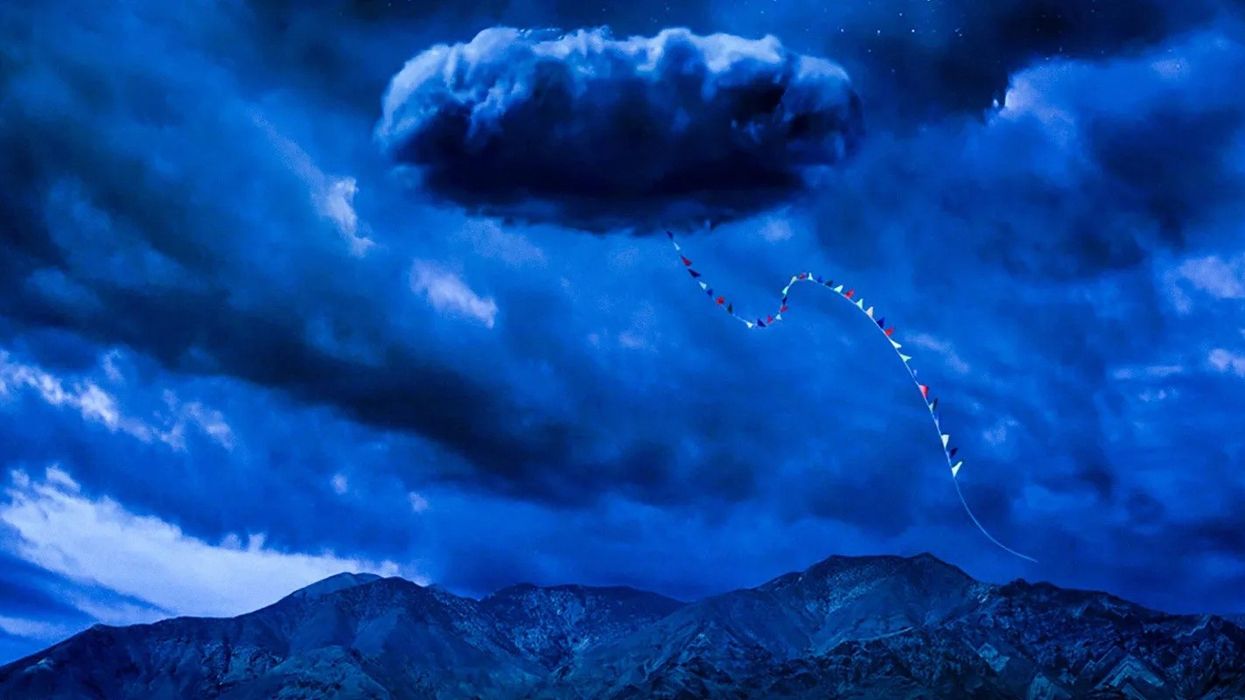Here's How the Sound Design of 'Nope' Creates a "Creditable" Entity
The spectacle of Nope isn't just in the film's visuals.

Jordan Peele’s third feature film Nopeasks us to look to the sky for a horror beyond our imaginations. This Lovecraftian horror breeds questions, demands careful rewatches, and creates a complex relationship between the Hollywood industry, man, and nature.
Recently, Peele was on IndieWire's Filmmaker Toolkit podcast to discuss the process behind the creation of his alien life form that is vital to the story. When asked if he needed to devise a complete history to fully understand the inner workings of this creature, Peele stated, “Yes!”
“I feel strongly that you have to do a certain amount of work that the audience can feel even though you are not showing it. I think that way with character, history, I think that way with the UFO in question,” Peele said. “This is something I can feel in some of my favorite directors. Paul Thomas Anderson and Quentin Tarantino, to name a couple, I think are people who feel like they are painting a small picture in a world that’s already painted, but also we see the success of this in Marvel and The Lord of the Rings, and everything that goes deeper than what you’re being shown.”

To round out the history of Nope’s antagonist, Peele knew the sound design would make the creature feel credible to the audience.
“Close Encounters of the Third Kindwas an obvious influence here in the way it captured the scope and the magic, and one of the sort of breakthrough elements of that film was the sound and the immersion,” Peele said while discussing the importance of sound design in his film.
Similar to Denis Villeneuve's unconventional pre-production for Dune, Nope’s sound design was developed early in the creative process. Peele brought aboard the sound designer behind one of his favorite sci-fi films, Under the Skin, supervising sound editor and re-recording mixer Johnnie Burn.
Burn recalled an early conversation with Peele during pre-production where they wanted to create something super realistic.
“If you believe that it happened, then it actually did happen,” Burn said during the Toolkit podcast. “And for that, we were kind of resisting the urge to hear anything from the monster too early on because we wanted it to be credible that this was a predator—and how could something so large be getting away with this?”
Near the beginning of the film, the alien’s sound design is only represented by the neighing of the horses. The audience only becomes aware that these horse sounds are seemingly off because of OJ’s (Daniel Kaluuya) reaction. There is a strange reliance the audience has on the character's animal expertise that the sound design creates, allowing the audience to fully emerge themselves into the story.

As the alien creature becomes less stealthy and more present, Burn explained that the goal was to craft “an epic presentation of alien life, basically really original visually and—obviously for my part—sounding representation of what goes on in Jordan Peele’s head as what an alien is.”
Nope takes full advantage of the ability of the Dolby Atmos system in most theaters that places sound with pinpoint accuracy in 360 degrees around the audience. Paired with the IMAX footage, the sensory overload of Nope will shake you to your core.
“And that’s really the point. We talk about hearing things all around us, well this is the movie where we really need to hear and feel what’s above us in a big way. It’s a dome of sound and part of the artistry is as much about what you include in the design, but also what you choose to exclude. It’s not just dumping a wall of sound of people, but sort of honoring the way we actually hear things,” Peele said.
Nope is a true cosmic horror that engulfs you in a way that other great sci-fi films have never been able to do. The ultra-wide shots, deep humming noises, and distant sounds in the valley create tension so palpable that you will be able to sense it long after watching the film.
Do you have a favorite moment from Nope? Let us know why it stuck with you in the comments below
Source: IndieWire











